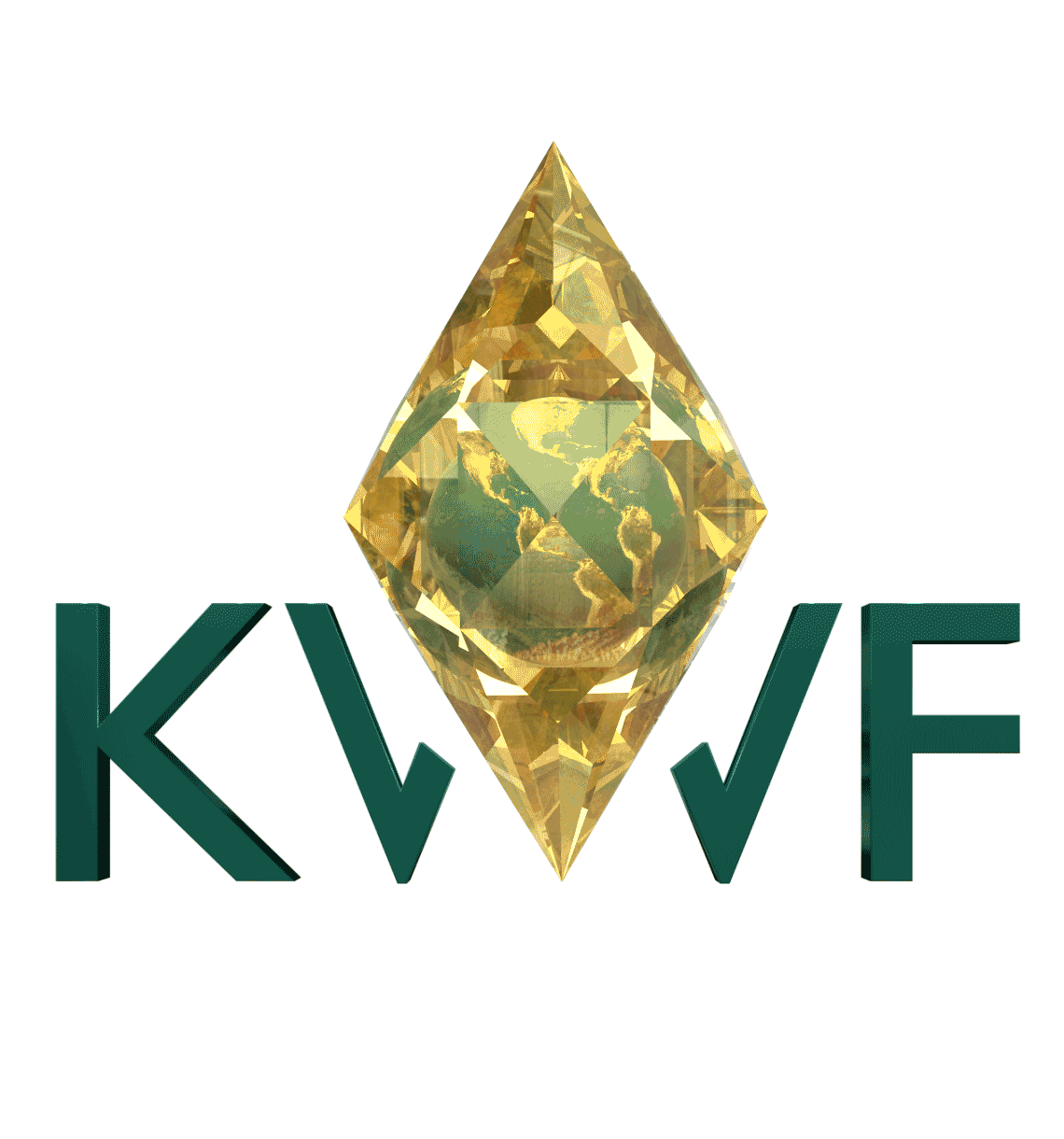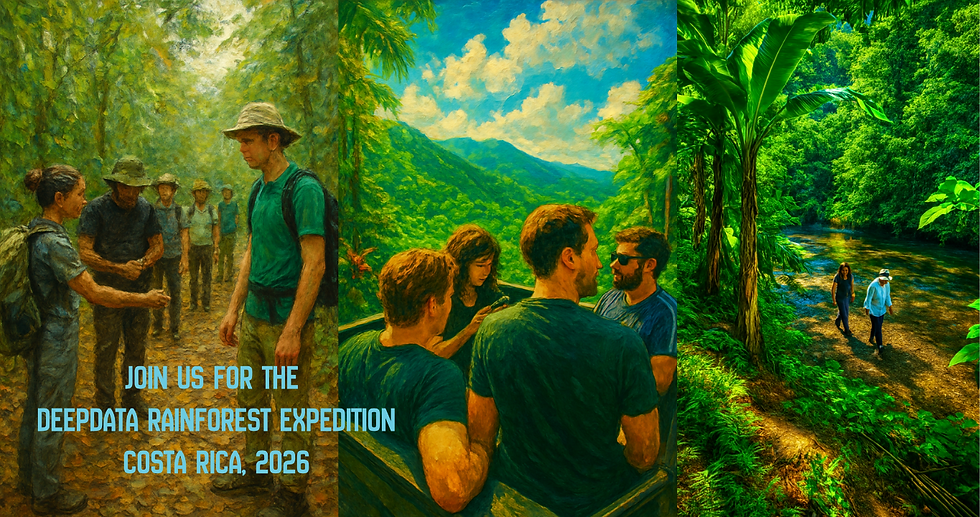Exploring Drones & A.I. from the Netherlands to the US
- Kashmir World Foundation

- Jul 13, 2022
- 4 min read
Updated: Nov 14, 2024

Founded in 2008, Kashmir World Foundation (KwF) is comprised of scientists, engineers, students, interns and volunteers from all over the world who share a common mission of securing the protection of endangered wildlife. KwF uses a combination of art, education, and science to find innovative solutions for protecting endangered wildlife. Kashmir Robotics, for instance, is responsible for designing and developing anti-poaching drones capable of recognizing and processing data using Artificial Intelligence (AI), which is used by scientists, rangers and law enforcement around the globe to protect endangered animals from poaching and other devastating tragedies.
Interns and volunteers work together from around the world on many KwF projects. In the Summer of 2021, Daan Eeltink joined the A.I. Team. Originally, Daan learned of KwF because of a graduation requirement for his bilingual education program at his school in the Netherlands. His was required to intern at an English-speaking environment for two weeks. Captivated by drones and A.I, this was exactly what Daan was searching for in an internship.

He learned about the internship via an article he read about the MiShell Drone Project. MiShell is a drone developed by KwF to help sea turtle conservationists in real time detection, identification and location of sea turtle tracks. The drone can then follow the tracks to determine if the sea turtle has laid a nest and provide the conservationists with the GPS coordinates. After reading more into the article and KwF, Daan applied and was accepted for a two-week in-person internship, but he was so interested in learning more that he begin a virtual internship right away that lasted throughout his school year.
On April 24, 2022, Daan arrived in Orlando, Florida and met with Princess Aliyah, Dr. Pandolfi, CTO of KwF and Kashmir Pandolfi, Jr. Drone Engineer at KwF. They all attended the AUVSI Xponential Conference & Expo 2022 , at this Expo Daan was exposed to a variety of drones, software, and other emerging technologies. He had an opportunity to meet with Mike Walker the CEO of DroneUP, a drone delivery company based in Virginia Beach.
Daan also had a meeting with Sea Turtle Biologist Dr. Jake Lasala and Manatee Biologist Dr. Beth Brady at the Mote Marine Lab & Aquarium. During their meeting Daan learned about the use of drones to map sea grass meadows off the coast of Sarasota and they discuss how A.I. can be used to help with the research. They also had an opportunity to tour the facility and meet some sea turtles and manatees! In addition to learning opportunities Daan also enjoyed his time at Orlando Studios, Wonder Works, Siesta Keys Beach and Coco Beach.
On April 29th the Team arrived at the Ronald Reagan National Airport across the Potomac River from Washington D.C. Over the weekend Daan explored Washington D.C. by visiting the White House, museums, and other tourist attractions in the Capitol of the United States. The week in Virginia quickly flew by with drone flights, attended a virtual Eagle Ray presentation, worked with a raspberry pi and YOLOv5, as well as seeing some historical airplanes and drones at Udvar Hazy Air & Space Museum. After his in person experience Daan said, “joining the team has provided me with many more opportunities and experiences.”
Now a part of three teams, including the AI Team, Integration Team, and the Drone Kit Team, Daan is taking on more challenging roles. He is currently working on the Trinity Project with various other teams and has become the Team Lead of the AI Team and Integration Team. Within the AI team, Daan and the others are currently working on the development of A.I. models to be used by snow leopard biologists in the Himalayas. The A.I. will be able to identify and differentiate various between various species. In speaking of his work on this project, Daan states, “We’ve already trained and compared multiple versions of our model and are now fine-tuning them to achieve the best possible performance. To do so we test multiple model configurations and optimize the dataset.”
When thinking of everything Daan has been involved with at KwF, the Trinity Project stands out as the most memorable. This project specifically gave Daan the opportunity to learn about things he didn’t previously have experience working with, from interpreting model performance, training an AI model, preparing datasets, and determining what needs to be improved in the project after recognizing any weaknesses.
In addition to technical skills Daan has been building his leadership and partnership skills. To help the team with fast processing power Daan reached out to RunPod.io for access to their virtual GPUs. Graciously the Runpod team has committed to providing the A.I. team with 500 hours of GPU training! Runpod was founded by a few "passionate, scrappy engineers that think GPU computing is the future. There isn't enough competition and innovation in the GPU computing space and we plan to change that." Thanks to Runpod's passionate founders, now snow leopards will have more chances of survival and students an opportunity to engage with fast and efficient A.I. training models.

Looking forward, Daan is hoping to study bioinformatics, which combines many of his interests, such as AI, programming, and biology in a practical environment. During his time at KwF, Daan has worked with an international community, managed data and results, and learned practical AI skills, which he believes will prove to be useful in his future academic and professional career. As for how KwF has impacted him and has inspired his extended stay, Daan conveyed “They constantly provide me with new challenges to work on. I’m always learning new things or working on different projects. This keeps the work very interesting and makes it feel more like a hobby than work.” Photographs courtesy of Daan Eeltink.































Comments